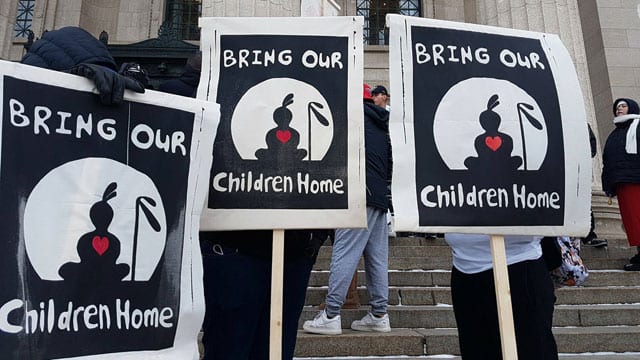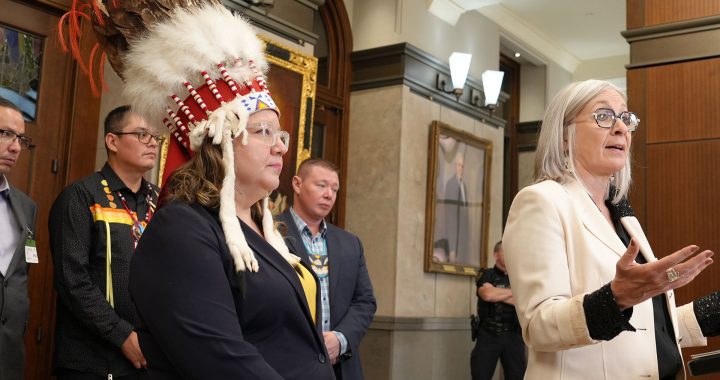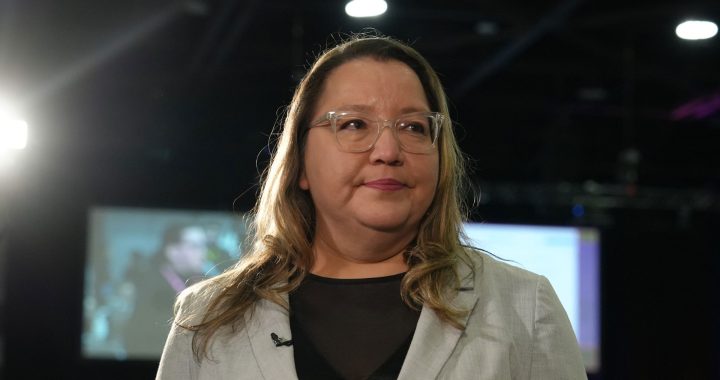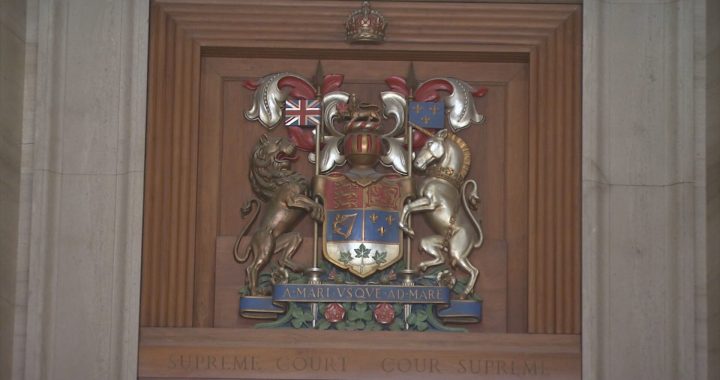
No one can say today exactly how many First Nations children are in the on-reserve child welfare system across Canada.
In fact, no one has ever been able to say.
It’s never been tracked properly by the federal government, which it now says it’s looking to do.Indigenous Services Canada (ISC) is in the process of “developing a national data and reporting strategy that will address current data gaps,” said department spokesperson Rola Tfaili.
The federal government has always had a duplication problem in how it collects data.
“As mentioned in your question, duplication (among other inconsistencies in data) still exist, making the provision of accurate data difficult,” said Tfaili.”This strategy, and any process for the collection and disclosure of data, will be determined through discussions with our Indigenous partners and with our provincial and territorial colleagues.”
There were 9,246 First Nations children classified as in care in the 2017/2018 fiscal year, a jump from the previous two years of about 700, according to ISC.
That doesn’t include Inuit, Metis, off-reserve or the Northwest Territories.
But there’s another reason why there’s an urgency to have correct data.
The federal government is poised to pay out billions of dollars to First Nations people who survived the on-reserve child welfare system, but doesn’t know how many there are.
Yet, the federal government warned last fall the total to payout would be between $5- to $8 billion just to comply with a Canadian Human Rights Tribunal ruling ordering every child “willfully and recklessly” apprehended in the on-reserve child welfare system from 2006 until present be paid $40,000 each.
The federal government was found guilty by the tribunal Jan. 26, 2016 for purposely under-funding the system after a 10-year battle by child advocate Cindy Blackstock and the Assembly of First Nations.
“You can’t trust the Justice department lawyers on anything when it comes to Indigenous justice,” said NDP MP Charlie Angus on Nation to Nation Thursday. “So they came up with a very high figure to say ‘this is outrageous. Of course we can’t pay any of this.'”
APTN first reported before Christmas that Angus requested the Parliamentary Budget Office (PBO) cost-out the tribunal’s order because he wanted to know how the federal government came up with its tally, but also get to what he suspects is closer to the true number.
Angus also got the PBO to include in the cost-out a pending class-action lawsuit sparked by a First Nations man, Xavier Moushoom, who was shuffled from foster home to foster home as a child.
That action goes back to 1991 and overlaps the tribunal’s compensation period.
“[The PBO is] very keen, I think, to get to the bottom of what we’re looking at in terms of numbers and those numbers will really dictate future discussions and negotiations with the federal government,” said Angus.
While the national strategy is needed, said Angus, history has shown he can’t trust it will actually work.
“If you leave it up to them they are going to do a lousy job. I’m sorry I just don’t have any faith in them doing the right thing unless they are forced to do the right thing,” he said.”Children have died. We need to fix this. The longer the government fights and prevaricates and puts up legal tactics more children are going to be taken from their families, more children are going to lose their identity and more children will end up dying.”
By legal tactics, Angus is in part referring to how it appears the Trudeau government first pitted the class-action against the tribunal and now the tribunal against the class-action as it works to towards a number it likes while the prime minister maintains he believes the children should be compensated.
It’s just how Ottawa gets there and that began with filing for a judicial review of the tribunal’s Sept. 6 compensation order to quash it outright, while also seeking to pause it by requesting the Federal Court of Canada grant a stay.
As Justice lawyers argued their motion in Federal Court Nov. 25, a joint statement was released by Justice Minister David Lametti and Indigenous Services Minister Marc Miller saying Canada wouldn’t fight certification of the class-action, basically speeding up the process by a year.
Four days later, the Federal Court ruled it wouldn’t pause the compensation order but allowed the judicial review to proceed that has yet to be scheduled.
Lawyers for the class-action now say Justice lawyers emailed them an affidavit a week ago saying Canada would now fight certification.
As that is happening Justice lawyers have picked up talks with Blackstock and the AFN to determine how that order will play out, however they are not close to an agreement and a hearing scheduled for Jan. 29 was punted to Feb. 21.
Angus has referred to it all as a “cynical ploy.”
Miller has said Canada just needs more time.
Meanwhile, the judicial review looms over those talks.
The government, on record, still wants to quash the tribunal’s compensation order.Since the human rights complaint was first filed in February 2007 the federal government claims it has spent at least $5.2 million in legal fees fighting it as of Dec. 9, 2019 according to documents provided to Angus by the Justice department.
Angus also asked for money spent fighting the complaint in Federal Court but that was withheld.
While the number of First Nations children appears to be going up so has the funding for on-reserve child welfare.
In 2017, the federal government provided approximately $790 million. More than $1.14 billion has been allocated for the 2019/2020 fiscal year.












